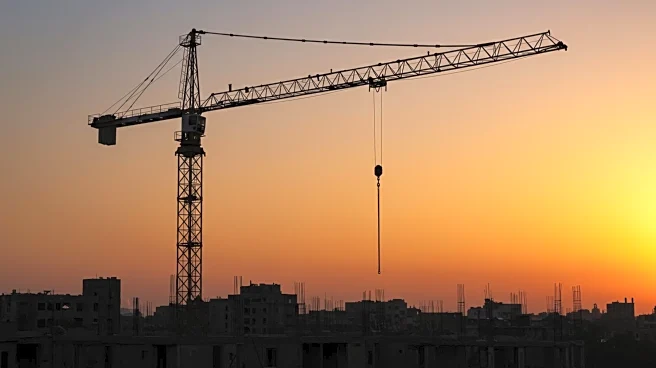What's Happening?
In Sudan's capital, Khartoum, reconstruction efforts have commenced following extensive damage caused by ongoing conflict between the Sudanese army and the paramilitary Rapid Support Forces (RSF). The fighting, which began in April 2023, has left the city severely damaged, with infrastructure stripped bare by paramilitary fighters. Government agencies and youth-led volunteer groups are leading the reconstruction, focusing on repairing hospitals, schools, and essential water and power networks. The UN has warned of unexploded ordnance throughout the city, complicating rebuilding efforts. Despite these challenges, Sudan's Prime Minister Kamil Idris has pledged a wide-scale recovery effort, aiming to restore Khartoum as a proud national capital.
Why It's Important?
The reconstruction of Khartoum is crucial for Sudan's recovery from one of the world's worst hunger and displacement crises, which has killed tens of thousands and displaced 13 million people. Restoring infrastructure is vital for improving living conditions and enabling the return of displaced residents. The rebuilding efforts also symbolize a step towards stability and normalcy in a region plagued by conflict. However, the extensive damage and contamination by unexploded ordnance present significant obstacles, requiring substantial financial and logistical resources. The UN estimates the rehabilitation of essential facilities to cost around $350 million, with full rebuilding expected to take years and several billion dollars.
What's Next?
The Sudanese government plans to evacuate and redesign central Khartoum, the devastated business and government district. The UN anticipates up to two million people returning to Khartoum by the end of the year, with tens of thousands already back. As reconstruction progresses, challenges such as the lack of raw materials and infrastructure tools persist. The government is also planning its return from the wartime capital, Port Sudan, signaling a move towards re-establishing Khartoum as the administrative center. Continued international support and funding will be essential for the long-term success of these efforts.











